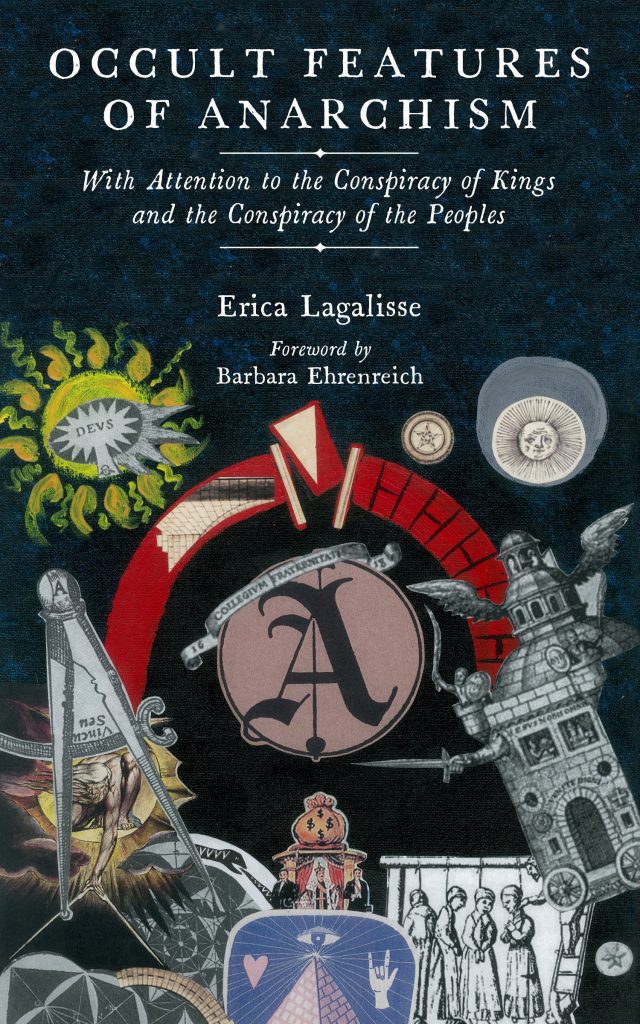
Erica Michelle Lagalisse is a postdoctoral fellow at the London School of Economics (LSE) International Inequalities Institute, under the supervision of Dr. Beverley Skeggs. She is engaged in multi-sited ethnographic research on the social dynamics surrounding “conspiracy theory” in social movement spaces. The research seeks to contribute constructive pedagogy around “conspiracy theory” as both a theoretical object and practical political problematic.
Lagalisse’s doctoral thesis in Anthropology, “Good Politics”: Property, Intersectionality, and the Making of the Anarchist Self, explores anarchist networks that cross Québec, the United States and Mexico to examine contradictions within solidarity activism and settler ‘anarchoindigenism’. The work throws into relief the particular practices of university-educated Anglo-American leftists, and draws on anthropological, feminist and critical race theory to show how they have preempted the black feminist challenge of “intersectionality” by recuperating its praxis within the logic of neoliberal self-making projects and property relations.
Erica Lagalisse completed her PhD at McGill University in Montreal, Canada, during which time she held a visiting researcher appointment at the Centro de Investigaciones y Estudios Superiores en Antropologia Social (CIESAS) in Oaxaca, Mexico, and a U.S.-Canada Fulbright Fellowship at the Teresa Lozano Long Institute of Latin American Studies (LLILAS) at the University of Texas at Austin, as well as doctoral scholarships from the Social Sciences and Humanities Research Council of Canada and the Fonds de Recherche du Québec – Société et Culture.

Occult Features of Anarchism: With Attention to the Conspiracy of Kings and the Conspiracy of the Peoples
SKU: 9781629635798
Author: Erica Lagalisse • Foreword: Barbara Ehrenreich
Publisher: PM Press
ISBN: 9781629635798
Published: 1/2019
Format: Paperback, mobi, ePub, PDF
Size: 5 x 8
Page count: 160
Subjects: Politics-Anarchism / Anthropology
Praise
“This is surely the most creative and exciting, and possibly the most
important, work to come out on either anarchism or occultism in many a
year. It should give rise to a whole new field of intellectual study.”
—David Graeber, professor of anthropology at the London School of Economics and Political Science, author of Debt: The First 5,000 Years
“A tour de force. Any self-respecting radical should know this
history, right down to the dirty history of the ‘A for anarchism’ sign
from its location within Freemasonry and magic. Ripping apart with
historical detail our contemporary common sense we learn the tactics of
how elite radicals claim power through difference. The significance of
this history for the politics of now should not be underestimated and
most certainly more widely known. Essential reading.”
—Beverley
Skeggs, director of the Atlantic Fellows programme at the International
Inequalities Institute of the London School of Economics and Political
Science, author of Class, Self, Culture
“Lagalisse excavates the theological, spiritual roots of anarchism to
identify some of the contemporary shortcomings of left activism.
Engrossing, enlightening, and often surprising, the book delights and
dazzles as it ruminates on a stunning array of topics from gender and
intersectionality to secret societies, the occult, and conspiracy.”
—Gabriella Coleman, professor of anthropology at McGill University, author of Hacker, Hoaxer, Whistleblower, Spy: The Many Faces of Anonymous
“Fun and fascinating, playful and serious at once, Occult Features of Anarchism reveals
further why and how the social worlds of the Left often carelessly
reproduce and even further entrench mainstream forms of gendered power.”
—Sally Cole, professor of anthropology emerita, Concordia University, author of Contesting Publics: Feminism, Activism, Ethnography
“Erica Lagalisse’s Occult Features of Anarchism is a
wonderful and learned provocation. Taking the concept of modern politics
as a form of theology and magical ritual, she traces some aspects of
the origins of socialist and anarchist politics and performance to the
Hermetic tradition which influenced the Radical Enlightenment and its
originators, in for example, the work of Spinoza. But she also argues
that this ‘magical’ or Hermetic tradition rested on a masculinist coup
against women’s knowledge, especially in the transformation of women
healers into malevolent witches.”
—Carl Levy, professor in the Department of Politics and International Relations at Goldsmiths, University of London
Book Events
april, 2024
No Events
Reviews
- Occult Features of Anarchism on Marx & Philosophy Review of Books
- Occult Features of Anarchism: A Review & Talk
- Occult Features of Anarchism: A Review
- We Must Pay Attention to the Powerful Political Force of Conspiracy Theories — Occult Features of Anarchism in PopMatters
